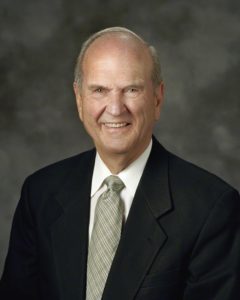Terry Givens in his prodigious and highly regard work, By the Hand of Mormon: An American Scripture That Launched a New World Religion, advances a thesis that has since become commonly accepted among Mormon Scholars and bloggers. In it, he discusses the importance of the Book of Mormon to the early members of the Church and describes how the book was primarily used as a symbol and tangible manifestation of the restoration, rather than for its theological or devotional value. I have great regard for Terryl Givens, having been a Mormon Summer Scholar in the program that he runs. And I think his thesis has been very valuable in helping Mormons understand the changing role of the Book of Mormon and to more seriously dedicate ourselves to study of the text itself.
Nevertheless, while I do believe that Terryl Givens offered very valuable insights and is largely accurate, I also think his thesis glosses over the various devotional ways that the Book of Mormon was used by the early Saints. Moreover, although his theory acknowledges nuance and counter examples, it has since been spread and amplified in a more exaggerated fashion to suggest that early leaders completely ignored the spiritual value of the Book of Mormon.
In this post, I want to offer a couple of prominent examples that I have found in early church history that illustrate the ways that the Book of Mormon was used not only as a symbol, but as a source of inspiration and spiritual guidance.
D&C 33:8
Of course, one of the most prominent examples of devotional usage of the Book of Mormon comes from the Lord himself through the Prophet Joseph Smith. In D&C 33, the Lord calls missionaries to gather his elect from the four corners of the earth, and promises them that if they open their mouths they will “become even as Nephi of old, who journeyed from Jerusalem in the wilderness.” This is an unusual reference to Nephi, because of all of the characters of the Book of Mormon Nephi does not come to mind as a great or successful missionary. And yet, Nephi had incredible visionary experience and was at times filled with such greater power that his message literally shook the listeners to their core. And Nephi was a great teacher expounding on the scriptures, another theme from this section of revelation (See D&C 33:16). And some have even speculated that additional missionary exploits of Nephi might have been contained on the 116 lost pages and that these stories might have been told by early members of the church. Regardless of whether that theory has any truth in it, it is clear that these words would have had meaning to those inspired to go out a serve, and that Nephi served as an exemplar of a man of vision and courage.
Continue reading →
 Pres. Nelson issued four challenges to the sisters in the Saturday night Women’s Session of General Conference. They are:
Pres. Nelson issued four challenges to the sisters in the Saturday night Women’s Session of General Conference. They are:
 I’m one of the Gospel Doctrine teachers in my ward. It’s a calling l love, but am terrified of all at the same time. Teaching the gospel to adults is very hard, especially when I feel like I’m the least experienced in the room. But it’s good to feel inadequate sometimes. It pushes me to rely on the Lord a lot more to do my calling the right way.
I’m one of the Gospel Doctrine teachers in my ward. It’s a calling l love, but am terrified of all at the same time. Teaching the gospel to adults is very hard, especially when I feel like I’m the least experienced in the room. But it’s good to feel inadequate sometimes. It pushes me to rely on the Lord a lot more to do my calling the right way.